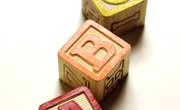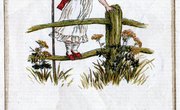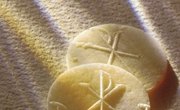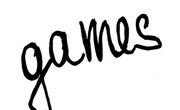Spelling Bee Games
Children can find it difficult to remember how to spell words. Now you have the opportunity to make remembering easier for them. Playing games is something everyone loves to do, and now you can make it educational. People have competed in spelling bees for decades and they are always a favorite game. Using crossword puzzles, Scrabble, puzzle games, Wordle or the New York Times games are popular for teaching and learning unfamiliar words. The New York Times Spelling Bee is a famous Bee in the U.S. Sam Ezersky is the host of the online NYT Spelling Bee at nytimes.com. The New York Times crossword is another great option for spelling learning as well.
Word games, like those used in Spelling Bees, often use beginner to advanced words in gameplay for different levels and ages of students involved. For easy letter memorization and recognition, people reference pangrams in their spelling processes. Whoever can correctly spell the most Spelling Bee words will become the winner, or Queen Bee/King Bee.
This solver will rule their learning beehive. Most students who try in Spelling Bees have the most trouble with center letters of longer words, as compared to simpler, smaller words, like four-letter words. Compound words are normally frowned upon for Bees, but forums change depending on reading level and age. While Spelling Bees can vary, these spelling games all involve spelling words from a word-list. Most Spelling Bees involve school children ages 5 years-old and up. New words can be learned pretty easily to prepare and during a Spelling Bee experience. Spelling Bee players are tested by the genius of spelling bee words used, and some use groups that work together, like a hivemind, to solve the spelling riddles. The following will help you have your own spelling bee game.
How to Play Spelling Bee Games
Assemble a group of children who are in the same age range, preferably the same grade. If a child is a little younger or older that is fine, as you can make adjustments for them.
Make a list of words suitable for the age group you have assembled. You can find words from the spelling lists that teachers give to the children.
Arrange prizes. There should be some reward for winning the game; however, you may also include prizes for any child who is participating. This will make your job easier in getting children to play the spelling bee game.
Determine who will go first by drawing numbers. This is the fairest method to all the children, but you could have them go from youngest to oldest or visa versa.
Ask the first child to spell a word. You should not cheat and skip words but you can have more than one list for each child's age group. Cross off each word as the child spells it so that you know which word to go to next. If he spells the word correctly, then the child will stay in the game, if incorrect, than he is out of the game and the next child has to spell that word.
Have each child say the word, spell the word and say the word again. This is the way a spelling bee works and you should prepare them for it.
Give a prize to each child as he misses a word. Lollipops work well since they are inexpensive and will keep the child occupied while the others have their turn at the words. If you find the game is going to be over too soon you may have them misspell more than once before they are eliminated. If your looking for more unique options for small participation prizes, you can offer honeycombs.
Tip
Give the children advance warning that you are going to play a spelling bee game so they can prepare themselves. Since they are all friends each will want to out do the other, so it can get competitive. This is usually a good preparation for a real spelling bee where the children will be competing with others in their school to eventually compete in national spelling bee competitions at a future date. If you have a large group of children, you can make partners and each can have input into each word or they may choose which one will answer.
Related Articles
Resources
Tips
- Give the children advance warning that you are going to play a spelling bee game so they can prepare themselves. Since they are all friends each will want to out do the other, so it can get competitive.
- This is usually a good preparation for a real spelling bee where the children will be competing with others in their school to eventually compete in national spelling bee competitions at a future date.
- If you have a large group of children, you can make partners and each can have input into each word or they may choose which one will answer.
Writer Bio
<!--StartFragment-->I am a current senior studying at the University of Missouri - Columbia with a major in Journalism and a minor in Sociology. I have interests in photojournalism, documentary journalism and design fields. <!--EndFragment--><!--EndFragment--><!--EndFragment-->









